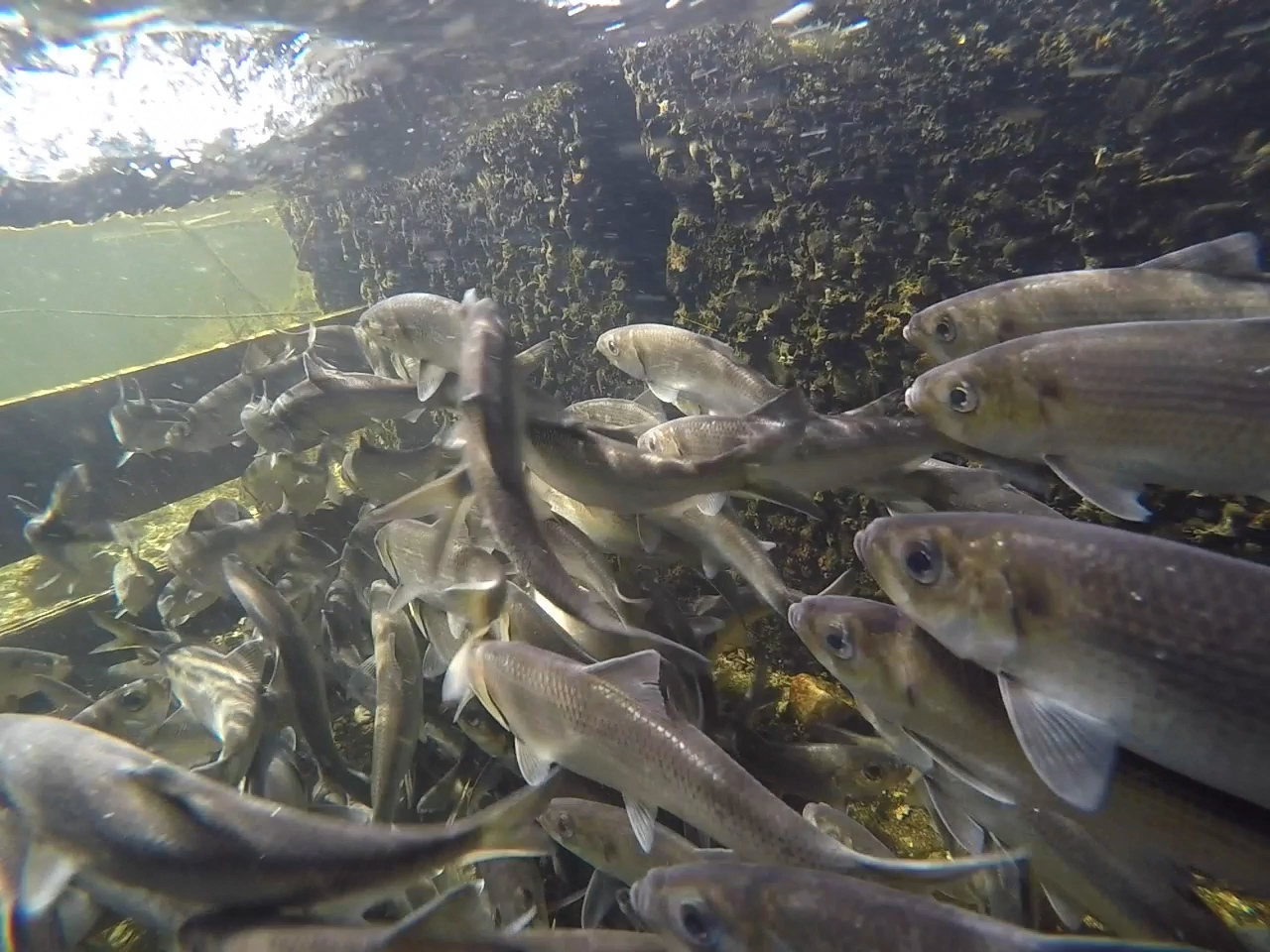
New Internship in Diadromous Ecosystem Research Program
August 20, 2020 – Maine Sea Grant in partnership with the National Oceanic and Atmospheric Administration’s Northeast Fisheries Science Center (NEFSC) launched a 13-week, paid internship this summer as part of a program to provide opportunities for undergraduate students in Maine to gain experience in fisheries science and research.
Four students from Maine universities and colleges worked remotely with mentors from University of Maine, USGS Maine Cooperative Fish and Wildlife Research Unit, Penobscot Nation, and Maine Sea Grant. Students also gained experience working with scientists and resource managers who operate outside of the university setting.
Using established data sets and historical public documents, the interns were able to conduct research on sea-run fish, also called diadromous fish, and learn about their management. Interns presented their findings to program mentors and colleagues at a virtual student symposium on August 11, 2020.
“This partnership provides students with the necessary experience that young professionals require in the field of marine science and fisheries,” said Justin Stevens, Maine Sea Grant Extension Associate. Stevens led the Sea Grant effort to organize the internship program, is a co-coordinator of the program, and served as a mentor this summer. “The program also provides the mentoring scientists added capacity to answer the many questions surrounding the science and management of sea-run fish.”
Because sea-run fish utilize streams and tributaries to move between their freshwater and saltwater habitats, dams and other obstacles can impact migrating fish by blocking or slowing access. Groups of migrating fish will build behind a dam, much like cars slow and backup behind a toll booth or lane closure on the highway. Additionally, some sea-run fish form large groups at the mouths of rivers during migration, making them particularly vulnerable to overfishing.
Historically, sea-run fish, such as Atlantic salmon, sturgeons, river herring, and eels, were abundant in Maine and provided a predictable source of protein for native peoples and later European settlers. The combination of dams and overfishing led to near extinction for many species in most rivers. Today, conservation efforts are underway to unblock and expand access to historical habitats and increase populations.
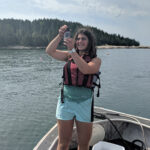
Hallie Arno, College of the Atlantic
Host: Maine Sea Grant
Hallie explored changes to fish and bird populations in the Penobscot River Estuary over the course of the past 10 years of river restoration. More specifically, she used monitoring data to investigate the role cormorants, a predator to salmon and other diadromous fish, played in the ecology of the Penobscot River.
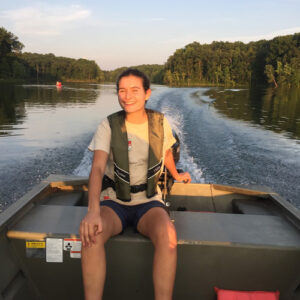
Clara Benadon, Bowdoin College
Host: Penobscot Nation
Clara supported fisheries science and management with the Penobscot Nation by compiling a history of the hydroelectric dam licensing process in Maine and articulating the influence on cultural and sustenance rights of the Tribe. Combing through public documents, Clara was able to create a timeline of legal precedence that could help inform future licensing processes.
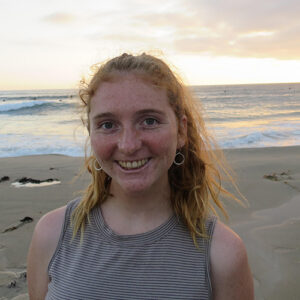
Margaret Campbell, University of Maine
Host: Maine Sea Grant
Margaret investigated river herring population trends and biological metrics (species, age, and percentage of females in a population) to support management in the Penobscot River. She also explored the current and historic management framework for these species to understand how her analysis can help evaluate sustainability measures.
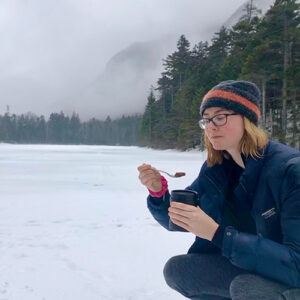
Lucie Nolden, Bowdoin College
Host: University of Maine USGS Cooperative Fish and Wildlife Research Unit
Lucie supported graduate research on the impact that migration delays may have on the size, number, and quality of female Atlantic salmon eggs. Atlantic salmon are endangered in-part due to the negative impacts of dams on passage. This research will support management related to developing dam passage timing criteria based on biological metrics.
